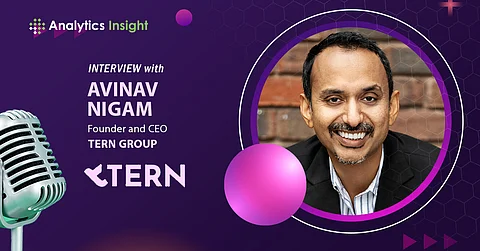

As talent shortages grip developed economies and emerging markets overflow with untapped skill, global recruitment is undergoing a deep transformation. On the latest episode of the Analytics Insight podcast, host Priya Dialani speaks to Avinav Nigam, Founder and CEO of TERN Group, to explore how artificial intelligence is reshaping cross-border hiring.
The episode opens with a look into long-standing flaws in recruitment, including outdated CV filtering, slow communication, and biased decisions. According to Avinav, these inefficiencies are especially problematic at a global level. He points to staggering mismatches: while developed countries like the US, UK, Germany, and Japan face an 84 million skilled worker shortfall, countries like India are seeing an explosion of underemployed talent.
Recognizing this imbalance, TERN Group has created a global AI-powered platform designed to match international job seekers with employers seamlessly. “Think of it like LinkedIn meets Amazon,” Avinav explains. “We remove all the friction between talent and opportunity.”
Detailing the scope of the platform, Avinav shares how TERN uses AI at every stage—right from WhatsApp-based data collection to document verification, AI-led interviews, and visa processing. The system narrows down a pool of over 650,000 profiles to the top 1-3% who are fully ready to be hired. Employers are only shown those few highly qualified candidates.
This streamlined approach not only reduces time-to-hire dramatically but also eliminates the need for traditional agencies, job boards, and fragmented recruitment processes. It's a single-window AI-native solution optimized for speed, accuracy, and compliance.
The idea behind TERN isn’t just a business response to market gaps—it’s deeply personal. Avinav recounts two incidents that drove him to build the company: a colleague’s death in the UK due to nurse shortages, and his CTO’s loss of a child in Berlin because of hospital understaffing. These tragedies underscore the urgency of deploying skilled professionals to areas that need them most.
Meanwhile, he observed countless skilled Indians, like his former nanny, fall victim to fraudulent recruitment agents, paying up to 50 lakh rupees for fake overseas jobs. TERN’s mission became clear: to build a safe and trustworthy bridge between qualified talent and ethical employers.
One standout feature of the platform is its scale. Employers can set up hiring requirements on a Friday, and by Monday, AI would have completed over 235 interviews, leaving only a handful of top candidates to consider. This shift, Avinav says, makes recruitment 10 to 15 times more efficient.
TERN also employs deep vertical AI models for sectors like healthcare, enabling smarter screening questions than traditional HR can manage. AI-driven fraud checks, document validation, and predictive analytics—such as job acceptance likelihood and visa approval probability—further refine the hiring funnel.
When asked about AI’s broader role, Avinav offers a clear strategy for businesses: “Don’t fear AI—it’s already here. Don’t just add it to your system. Become AI-native.” He emphasizes that while AI handles tasks at scale and precision, humans remain vital for empathy, logic, and connection.
The conversation also dives into global regulatory frameworks. Countries like Germany have introduced certification systems, such as the “Gute Siegel,” which allows only licensed recruiters to bring in international talent. TERN aligns with such frameworks, adopting a “zero cost to the candidate” policy to ensure ethical hiring.
India’s Ministry of External Affairs has begun enforcing similar standards, but Avinav notes the need for stronger oversight. He stresses that recruitment supply chains must be as transparent and accountable as those of any global brand, echoing how companies like Nike have been held responsible for their labor practices.
In closing, the podcast reinforces that AI is more than a tool—it's a catalyst reshaping how the world works. TERN’s story reflects what’s possible when technology, ethics, and global ambition meet. As workforce imbalances continue to widen, platforms like TERN are laying the groundwork for a future where skill, rather than geography, determines opportunity.
The entire episode of the Analytics Insight podcast, featuring Avinav Nigam, offers a compelling glimpse into the future of recruitment. AI isn’t just speeding things up—it’s helping build a fairer, smarter global job market.
